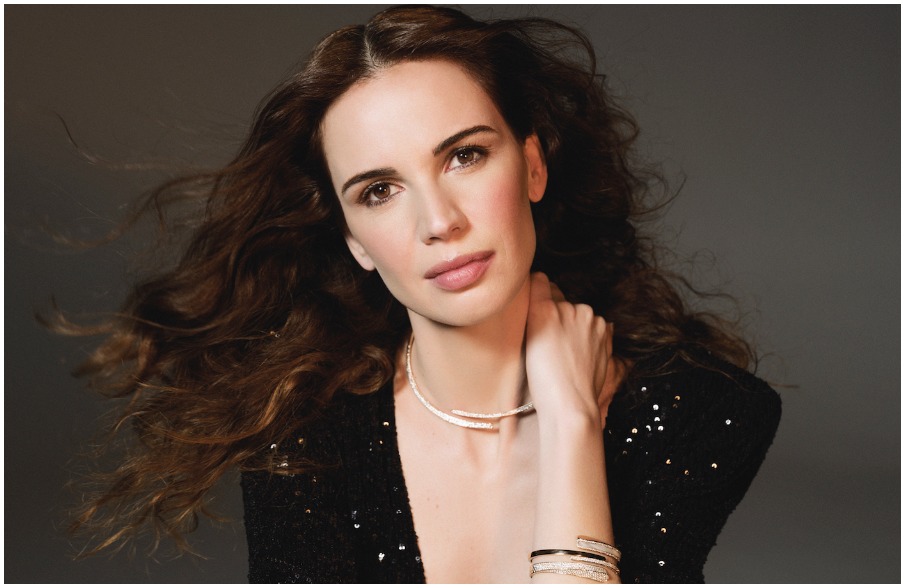“-15”, interview with director Rinaldas Tomaševičius and producer Lineta Lasiauskaite
In -15, director Rinaldas Tomaševičius was inspired by his homeless past and the people he met, the same people he wants to tell in his films.
Listeners:
Top listeners:
 play_arrow
play_arrow
ENGLISH Channel 01 If English is your language, or a language you understand, THIS IS YOUR CHANNEL !
 play_arrow
play_arrow
ITALIAN Channel 02 Se l’italiano è la tua lingua, o una lingua che conosci, QUESTO È IL TUO CANALE!
 play_arrow
play_arrow
EXTRA Channel 03 FRED Film Radio channel used to broadcast press conferences, seminars, workshops, master classes, etc.
 play_arrow
play_arrow
GERMAN Channel 04 Wenn Ihre Sprache Deutsch ist, oder Sie diese Sprache verstehen, dann ist das IHR KANAL !
 play_arrow
play_arrow
POLISH Channel 05
 play_arrow
play_arrow
SPANISH Channel 06 Si tu idioma es el español, o es un idioma que conoces, ¡ESTE ES TU CANAL!
 play_arrow
play_arrow
FRENCH Channel 07 Si votre langue maternelle est le français, ou si vous le comprenez, VOICI VOTRE CHAINE !
 play_arrow
play_arrow
PORTUGUESE Channel 08
 play_arrow
play_arrow
ROMANIAN Channel 09 Dacă vorbiţi sau înţelegeţi limba română, ACESTA ESTE CANALUL DUMNEAVOASTRĂ!
 play_arrow
play_arrow
SLOVENIAN Channel 10
 play_arrow
play_arrow
ENTERTAINMENT Channel 11 FRED Film Radio Channel used to broadcast music and live shows from Film Festivals.
 play_arrow
play_arrow
BULGARIAN Channel 16 Ако българският е вашият роден език, или го разбирате, ТОВА Е ВАШИЯТ КАНАЛ !
 play_arrow
play_arrow
CROATIAN Channel 17 Ako je hrvatski tvoj jezik, ili ga jednostavno razumiješ, OVO JE TVOJ KANAL!
 play_arrow
play_arrow
LATVIAN Channel 18
 play_arrow
play_arrow
DANISH Channel 19
 play_arrow
play_arrow
HUNGARIAN Channel 20
 play_arrow
play_arrow
DUTCH Channel 21
 play_arrow
play_arrow
GREEK Channel 22
 play_arrow
play_arrow
CZECH Channel 23
 play_arrow
play_arrow
LITHUANIAN Channel 24
 play_arrow
play_arrow
SLOVAK Channel 25
 play_arrow
play_arrow
ICELANDIC Channel 26 Ef þú talar, eða skilur íslensku, er ÞETTA RÁSIN ÞÍN !
 play_arrow
play_arrow
INDUSTRY Channel 27 FRED Film Radio channel completely dedicated to industry professionals.
 play_arrow
play_arrow
EDUCATION Channel 28 FRED Film Radio channel completely dedicated to film literacy.
 play_arrow
play_arrow
SARDU Channel 29 Si su sardu est sa limba tua, custu est su canale chi ti deghet!
 play_arrow
play_arrow
“Conversation with” at the 20th Marrakech IFF, interview with actor Willem Dafoe Bénédicte Prot

 play_arrow
play_arrow
"Empty Nets", interview with the director Behrooz Karamizade Angelo Acerbi
Empty Nets conveys to the audience the enthusiasm of the director Behrooz Karamizade , and his love for Iran, reasons for the great appreciation (a very long standing ovation ) the film received at his official screening.
Those same feelings are perfectly present in this talk we had with him, after his Special Jury Prize in Karlovy Vary. Behrooz tells his motivations, his drive to the story and he talks about the need of film like this in his country, to give the young Iranians an additional voice in the world.
Plot of Empty Nets: Amir and Narges, two people in love, who might be described as having been born under an unlucky star. The young man is from a poor family background and, after he is laid off from his job as a waiter, he is forced to find work in a fishing community. Narges has a higher social status and comes from a “good family”. For the time being, they are keeping their relationship a secret. In order for them to marry, Amir has to earn enough money for a dowry. To add to his problems, he discovers that the fishery employing him is also involved in dishonest business practices. Behrooz Karamizade’s feature debut is a realistic drama set in contemporary Iran which eschews embellishment in order to depict a struggle for the right to love, an entitlement that shouldn’t be contingent on money.
Written by: Angelo Acerbi
Guest
Behrooz KaramizadeFilm
Empty NetsFestival
Karlovy Vary Film FestivaltodayJuly 13, 2023 2
In -15, director Rinaldas Tomaševičius was inspired by his homeless past and the people he met, the same people he wants to tell in his films.
Heart Fruit in Future Frames: An episode film aiming at deconstructing clichés of cinematic love.
Terézia Halamová discusses Dog and Wolf at Karlovy Vary, a bold short film exploring identity, loss, and emotional chaos.
1:10, inspired by Sinan Taner’s personal experience, is a witty and poignant depiction of the clash of different cultures and different generations.
We Beg to differ, from SXSW and Clermont-Ferrand to Future Frames at the KVIFF
The End, Joshua Oppenheimer’s first narrative feature sees George McKay as the son in the last living family on planet earth





© 2023 Emerald Clear Ltd - all rights reserved.